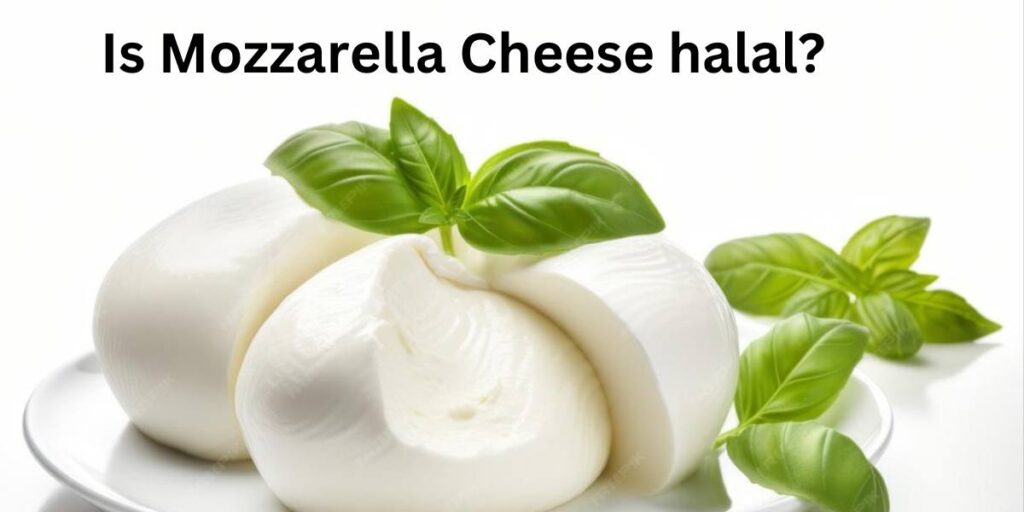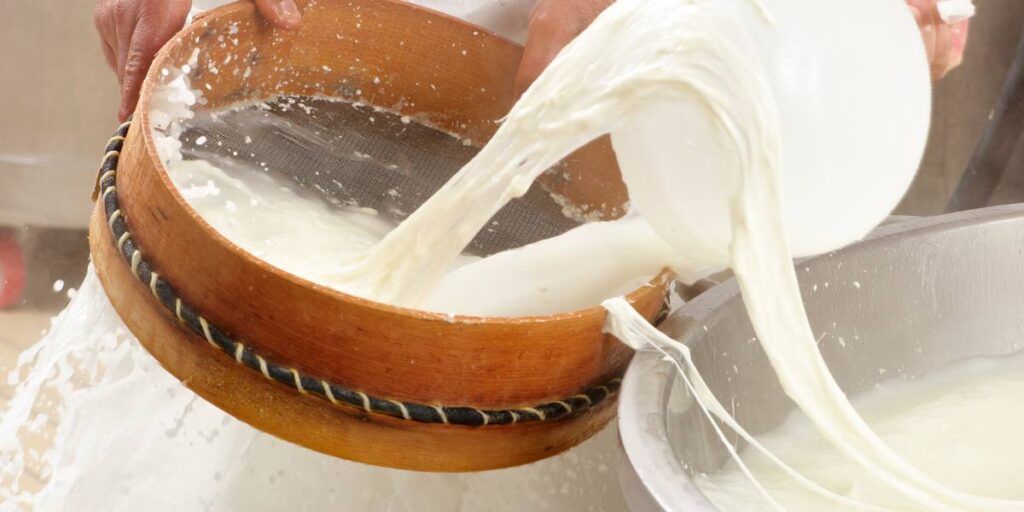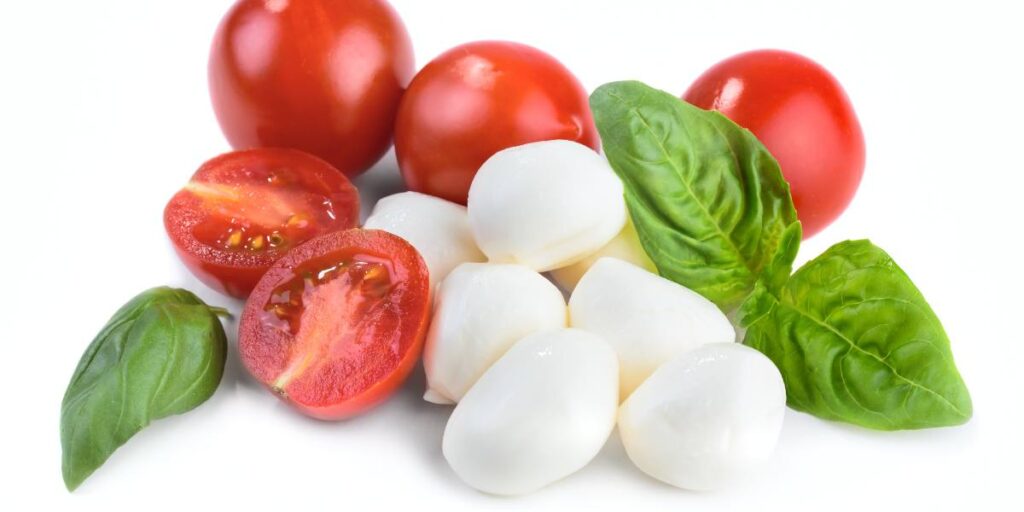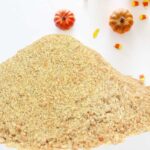Mozzarella cheese is widely consumed around the world, but for those who follow a halal diet, the question arises: Is mozzarella cheese halal? The answer depends on the ingredients used, as some cheeses might include non-halal ingredients. For those wondering whether it’s halal or not, checking the ingredients and finding halal-friendly alternatives is key.
Is Mozzarella Cheese halal?
The answer depends on the source of ingredients used to make mozzarella cheese, especially rennet. Different brands use either animal-based rennet or plant-based rennet. Animal-based rennets are generally haram, while plant-based rennets are considered Halal.

If you want halal cheese, the best choice is to look for a brand that uses plant-based rennet or microbial rennet. Research shows that most brands don’t use halal animal-based rennet in making mozzarella cheese.
How is Mozzarella Cheese Made?
Mozzarella is a beloved Italian cheese made from cow’s milk. Traditional Mozzarella cheese is famously produced in the Campania region of Italy. Fresh cow’s milk is combined with rennet, a coagulant from the lining of an animal’s stomach, to create curd. The curd is worked using a special technique called Pizzo, which means “kneading” in Italian. Salt and citric acid are added to give the cheese its unique texture and flavor. After shaping, the cheese is cooled and placed in brine for several hours.
- Rennet and fresh cow’s milk are used to make curd.
- Pizzo is the kneading technique used to work the curl.
- Salt and citric acid are added for taste and texture.
- The cheese is placed in brine to develop its distinct flavor.
Halal Mozzarella Cheese Brands
Mozzarella cheese can be halal if it is made with halal ingredients. Brands such as Arla, Galbani, and Friendship offer halal-certified mozzarella. Sorrento Low Moisture Part Skim Mozzarella Cheese, Tillamook, and Miller’s may also be halal with proper halal certification. Taam Tov and other kosher-certified brands could be suitable. Always double-check the halal or kosher certification on the packaging before buying.
| Brand | Certification Status |
|---|---|
| Arla | Halal Certified |
| Galbani | Halal Certified |
| Friendship | Halal Certified |
| Sorrento | Check Packaging for Halal |
| Tillamook | Check Packaging for Halal |
| Miller’s | Kosher Certified (Halal) |
| Taam Tov | Kosher Certified |
Ingredients Used To Make Mozzarella Cheese
Mozzarella cheese often contains cow milk, salt, and rennet. The rennet used can come from animal or plant sources.

- A starter culture with bacteria helps ferment milk.
- Enzymes in the recipe adjust acidity.
- Halal status depends on the rennet source.
- Extra ingredients may vary by brand.
Non-Halal Mozzarella Cheese Brands
Non-halal-certified brands of cheese are widely available in the market but don’t contain halal-certified ingredients. Popular brands like Great Value, Sargento, Kraft, Land’O Lakes, and Aldi often use rennet from animal sources, making them haram. Other brands such as Kirkland, Waldbaum, Happy Farm, Keyfood, FineFare, and Finast also fall into this category. Always check the label to ensure feta cheese or Parmesan cheese meets your halal needs.
Does Mozzarella Have Pig Rennet?
Mozzarella may contain pig rennet, an enzyme used to coagulate milk and make cheese. Traditionally, rennet comes from the stomach lining of unweaned calves or kid goats, but some cheeses now use microbial or vegetable sources. Check the label to avoid animal-derived ingredients if needed, ensuring it meets your dietary requirements.
Is Mozzarella Cheese Vegetarian?

Mozzarella cheese can be vegetarian if made with vegetarian-friendly enzymes like microbial rennet or vegetable rennet from plant sources. Some types use animal-based enzymes from a calf’s stomach, making them unsuitable for vegetarians. Always check the labels for vegan-friendly ingredients or vegan alternatives like coconut oil to meet specific dietary needs. Many grocery stores offer these options for a balanced diet.
Is Mozzarella Cheese Halal? – A Closer Look
American cheese can be halal if it meets Islamic law requirements. This includes checking that it is not made with pork products, alcohol, or animal-based rennet. Halal-certified products are safer for Muslims to consume. Always check the ingredients and look for a halal certificate to ensure it is permissible to eat.
Conclusion
Mozzarella cheese is halal if it’s made with the right ingredients and processes. It’s a popular dairy product with great taste and versatility, rich in nutrients like calcium and protein. Enjoying it in moderation can support a healthy diet and balanced lifestyle.
FAQ’s
Can Muslims have mozzarella?
Mozzarella cheese is Halal if made without animal rennet from non-Halal sources. Prohibition applies if animal products are used in the cheese-making process. Always check the source to ensure it’s Halal.
Which cheese is halal?
Mozzarella cheese is halal if made with halal enzymes, but other options like cheddar, gouda, brie, and blue cheese might not always be halal. Some parmesan and camembert cheeses use non-halal rennet, so it’s important to check labels. Swiss cheese and American cheese can also be halal if they meet the same criteria.
Does mozzarella have pig rennet?
Mozzarella is made from milk from ruminants like cows, sheep, or goats, using an enzyme from ruminants or a chemical catalyst from plants like nettles or artichokes. Pigs lack a four-chambered stomach and do not produce the enzyme needed, so pig rennet is not used in making mozzarella.
Is compliments mozzarella cheese halal?
Compliments: Mozzarella Shredded Cheese 320 g is not halal. Mozzarella cheese can vary by brand, as some may use ANIMAL-derived enzymes from pigs, making it unsuitable for a halal diet. Checking the label is key to ensure it meets your dietary needs.






